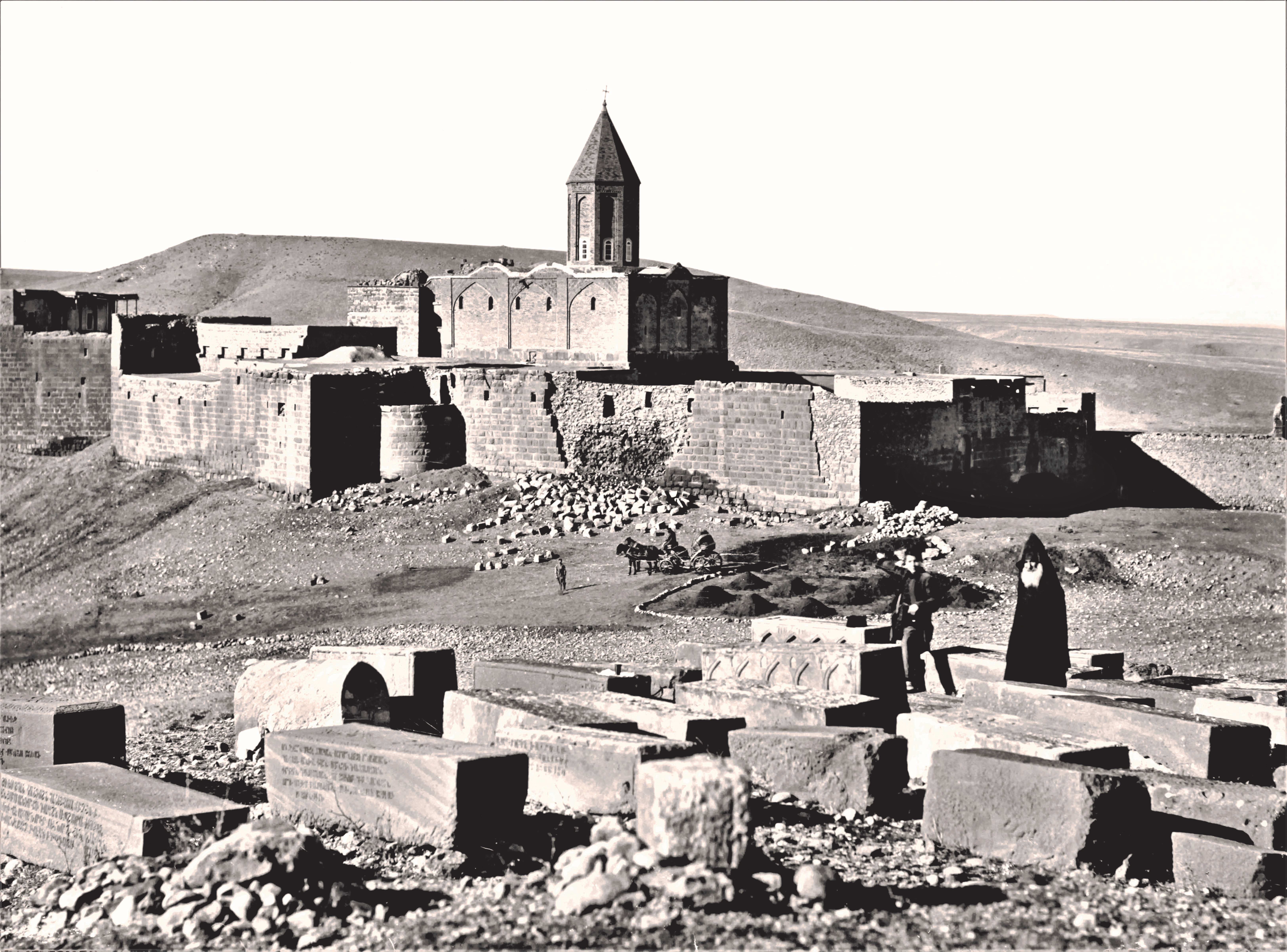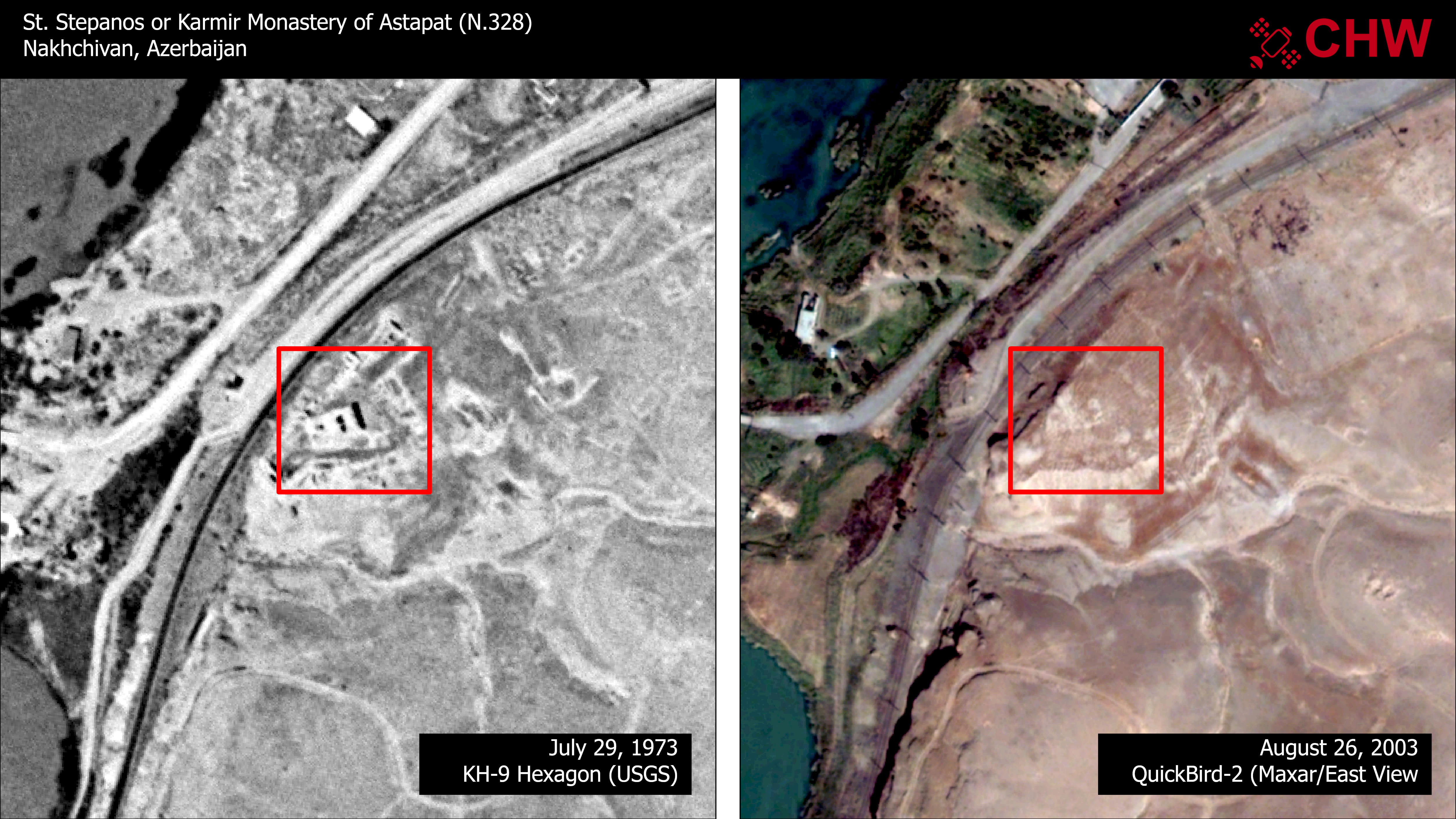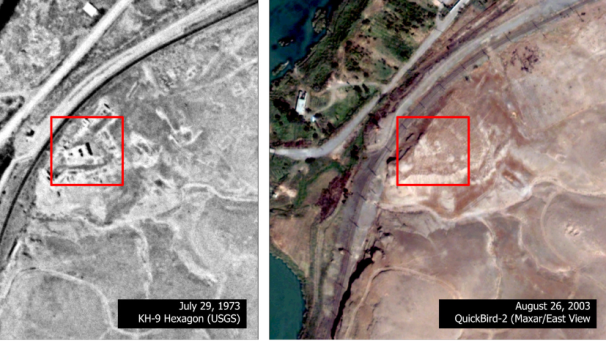New Technologies Can Help Prevent Cultural Erasure
Who We Are
Caucasus Heritage Watch is an innovative research initiative centered at Cornell whose mission is to document and monitor abuses of cultural heritage in conflict zones using high-resolution satellite imagery. Focused on the conflict between Armenia and Azerbaijan, we harness the latest technologies of earth observation to reveal visual evidence of cultural erasure and other abuses of heritage, past and present. Our purpose is to encourage accountability, inform public policy, support truth and reconciliation, and remove cultural heritage from the front lines of regional conflicts.

The Problem
War, ethnic cleansing, and genocide tear human societies apart, creating unfathomable losses and enduring scars. Cultural erasure – the systematic eradication of the monuments, sacred places, and memorials of a people – often precedes or follows mass atrocities, forestalling the rebuilding of communities, erasing evidence of human rights crimes, and preventing historical trauma from ever finding resolution. When cultural heritage is targeted, not only are human connections to the past disrupted, but surviving communities are deprived of the fundamental human right to cultural life.
Nowhere is the link between cultural heritage and human rights more evident today than in the 30 year conflict between Armenia and Azerbaijan, an enduring tragedy that has cost thousands of lives and caused numerous waves of forced displacement. In a groundbreaking forensic study, CHW used satellite imagery to show that Azerbaijan carried out a state-sponsored program of cultural erasure in the Nakhchivan region beginning in 1997. Virtually all traces of medieval and modern Armenian heritage were wiped out. Extraordinary monasteries, historic churches, and cemeteries of exquisite carved stone were bulldozed out of existence, an unparalleled loss for Armenians and for all of humanity.
The risks to cultural heritage in the Caucasus have only intensified in recent years. Wars waged by Azerbaijan in 2020 and 2023 resulted in the forced displacement of some 140,000 people and have exposed hundreds of Armenian monasteries, churches, cemeteries and other historic sites to the threat of damage or destruction. Since 2020, CHW has already documented numerous abuses of Armenian cultural heritage in the Karabakh region. Today, over 500 Armenian medieval and early modern sites in Karabakh are under threat, endangered by Azerbaijan's policy of zero tolerance for Armenian cultural remains. Azerbaijan has not permitted UNESCO to visit the region. And independent researchers also cannot conduct assessments on the ground. What can be done to save these irreplaceable monuments that testify to centuries of Armenian cultural life in Karabakh?
Our Solution
CHW uses high-resolution satellite imagery to systematically monitor the condition of Armenian cultural heritage in Azerbaijan, producing verifiable evidence that can be used in a court of law, or by publics seeking truth and reconciliation.
Historically, assessments of damage and destruction to cultural heritage in zones of conflict and atrocities are carried out long after the fact. But thanks to the latest satellite imaging technology, it is now possible to monitor heritage at-risk in something close to real-time. Our innovative approach allows us to sound the alarm before it’s too late and work to deter bad actors by making our findings publicly visible and accessible. Through our website, reports, social media, scholarly publications, and presentations in public fora, we bring concerning impacts on cultural heritage to the attention of policy makers, journalists, legal experts, stakeholders, and researchers as they unfold.
We seek funding to support our efforts to monitor approximately 500 critically endangered Armenian cultural heritage sites in Azerbaijan using high-resolution satellite imagery. Your donation will allow us to “task” satellites to capture images of these sites multiple times a year and detect changes to their condition. Through regular surveillance, we seek to deter further cultural erasure in the Caucasus and develop a model for saving threatened heritage anywhere in the world.

Our Impact
Already, our research is shaping international cultural heritage law and diplomacy. Our findings have been used as evidence in a case currently before the International Court of Justice in the Hague, Armenia v. Azerbaijan. Partly on the basis of our research, in 2021 the World Court indicated a provisional measure ordering Azerbaijan to, "“[t]ake all necessary measures to prevent and punish acts of vandalism and desecration affecting Armenian cultural heritage….” This ongoing case can establish a new legal pathway for securing heritage preservation in Azerbaijan and around the globe. The monitoring work for which we are seeking funding will continue to provide evidence for this precedent-setting case, the first to recognize a link between cultural heritage destruction and racial discrimination.
Our findings have also informed discussions, hearings, and policy reports of the United Nations, the U.S. Department of State, the U.S. Commission on International Religious Freedom (USCIRF), the U.S. Foreign Relations Committee, and the European Parliament.
CHW’s work is establishing an entirely new field that we call "heritage forensics". As a result of our work, Cornell has already emerged as a key leader in the global effort to document attacks on cultural heritage and deter erasure and cultural genocide. Support for CHW's work will establish Cornell as the center of heritage forensics and catalyze new collaborations across the campus and beyond, from law and policy to archaeology and aerospace.



